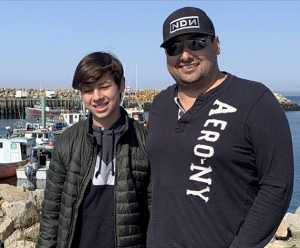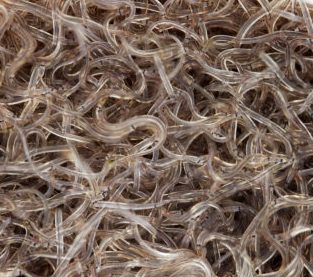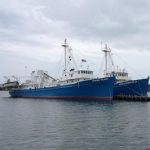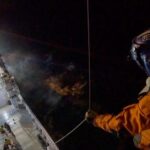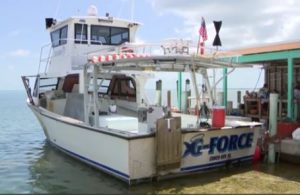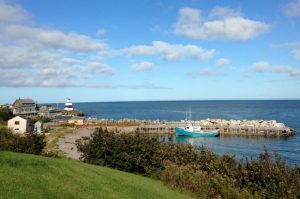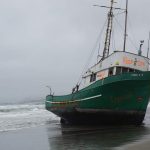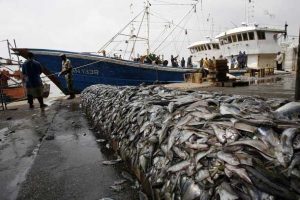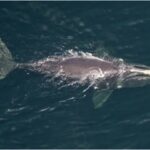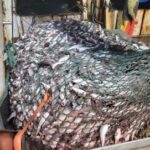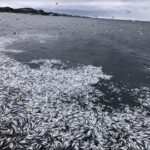Tag Archives: Nova Scotia
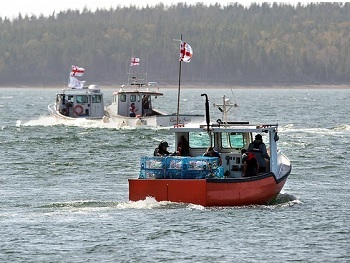
Minister Jordan issues statement on cooperative path forward with Potlotek First Nation moderate livelihood fishery
“I am pleased to announce today that we have reached an understanding that will see Potlotek First Nation fishing for a moderate livelihood and selling their catch starting Saturday, June 5, 2021.” As an interim measure, we will be recognizing those harvesters designated under Potlotek’s plan to be authorized to fish 700 jakej (lobster) traps without adding additional access and during the established season underway in Lobster Fishing Areas 27, 28, 29, 30 and 31a – which is within the Unama’ki region and aligns with Potlotek’s identified traditional district. The Unama’ki region is one of the seven Mi’kmaq districts in Atlantic Canada and Quebec, and spans Cape Breton Island. >click to read< 14:19
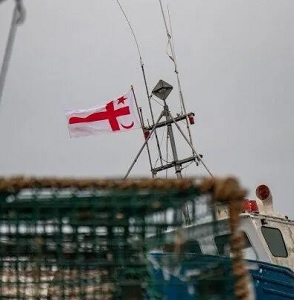
The Sipekne’katik First Nation has indefinitely postponed the start of a communal lobster fishery
The band said it was concerned for the safety of its fishermen and lacked resources to launch the fishery in St. Marys Bay. “The reality is that we would need to provide our own security and police our own gear getting seized and it feels like a costly prospect for our community after all that we have lost,” Chief Mike Sack said in a news release. The decision to postpone came following an emergency meeting of fishermen at Sipekne’katik on Wednesday morning. >click to read< 14:06

No more kicking ‘the rock down the road,’ on Indigenous fishery
A member of the parliamentary committee looking at Indigenous rights to a moderate livelihood fishery, says it is past time for government to deal with the issue. The parliamentary fisheries and oceans committee released a report earlier this month containing 40 recommendations on how to move those treaty rights forward. “It’s unfortunate that since the Marshall decision was made in Supreme Court that successive governments, Liberal and Conservative, have what I would call kicked the rock down the road rather than deal with the issue. And we’ve seen that come to a head last year,” said Egmont MP Bobby Morrissey, “Canada and the industry suffered a bit of a black eye from that, and it was unnecessary.” >click to read< 10:05
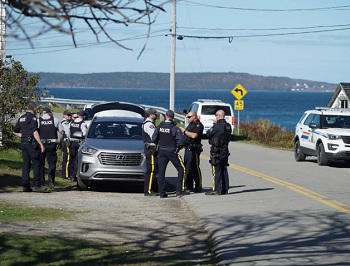
As tensions rose during N.S. fisheries dispute, province balked at paying for extra RCMP
The Mounties have faced scrutiny for their handling of the tensions that followed the launch in September of Sipekne’katik First Nation’s self regulated fishery in St. Marys Bay. Critics included federal Indigenous Services Minister Marc Miller who said the force should have done more to protect Mi’kmaw harvesters,,, It’s unclear what impact, if any, the financial approvals had on the RCMP’s staffing plans. “The number and type of RCMP resources that were deployed was based on operational needs,” Cpl. Chris Marshall, an RCMP spokesperson, said in an email. “In order to protect officer and public safety, we don’t discuss our operations, tactics and resources.” >click to read< 07:55
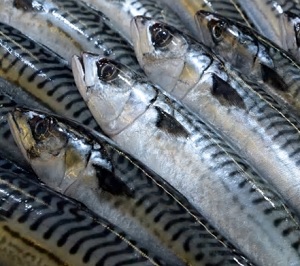
Canada cuts Atlantic mackerel quota in half to ‘rebuild stock’, to be released in two phases to ensure access
Canada has slashed the quota in half for Atlantic mackerel, from 8,000 tonnes last year to 4,000 tonnes this year. “This is a difficult decision that has economic impacts on commercial harvesters and their communities, but the science is clear: stronger actions need to be taken to rebuild the Atlantic mackerel stock,” said Federal Fisheries and Oceans Minister Bernadette Jordan in a news release Friday. That will help ensure fishermen in Newfoundland, where mackerel arrive later in the year, get access to some quota. >click to read< 08:03
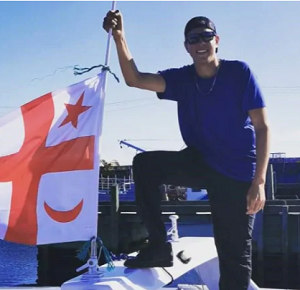
Fisheries rights trial for 4 Mi’kmaw fishermen delayed
The trial for Ashton Joseph Bernard, 31, Arden Joseph Bernard, 22, Rayen Gage Frances, 22 and Zachery Cuevas Nicholas, 34 was supposed to begin Friday morning in Bridgewater provincial court. By prior agreement, federal Crown prosecutor Denis Lavoie was supposed to enter an agreed statement of facts into the record during Friday’s hearing, then close the Crown’s case. The stage would then be set for arguments over whether the four men had a treaty right to fish when they were arrested and charged in September 2019. >click to read< 11:05
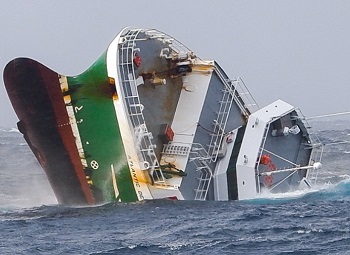
USCG and RCAF helicopter crews rescued over two dozen fishermen from a sinking vessel on a stormy night.
An offshore fishing trawler named Atlantic Destiny was in distress and her crew of 31 was battling a fire while the vessel was without power or steerage and shipping water. There initially was no direct line of communication with the stricken vessel, which may have experienced an engine room explosion and was running on emergency backup power. Information relayed from other fishing vessels in the vicinity suggested the situation was dire, but the crew had not yet given up hope they could save her. “As soon as we hear something like that, we start acting swiftly,”,,, But with 31 people to extract, this would be especially challenging. “It was a very large number of people to rescue in a very difficult location.” >video, click to read< 19:38

Prospect area mackerel fishermen demand answers after lucrative season halted by DFO
The fishermen were prepared to set up a roadblock if they didn’t hear back from the Department of Fisheries and Oceans about why the season was halted. While most commercial fisheries for Atlantic mackerel have not started for 2021, a number of fisheries in the Maritimes region are open year-round or opened on April 1.,, DFO issued a variation order to temporarily close the Maritimes region mackerel fishery. About 72 fishermen and their crew from the Prospect area who fish and set traps in St. Maragaret’s Bay are affected by the closure. They say there is mackerel in the waters but they aren’t allowed to pull in their nets because they haven’t been given their quota. video, >click to read< 10:29

Jaime Battiste: Balancing conservation and fairness in a ‘moderate livelihood’ for Indigenous fishermen
What is fair to the Mi’kmaq, who have been deprived of their legal right to a practice passed down for generations? What is fair to the commercial fishermen, many of whom today are of Mi’kmaq descent, who depend on the fishery and healthy stocks for their own livelihoods? There is no easy answer. The report addresses two misconceptions that have added fuel to this fire.,,, As someone who is fluent in the Mi’kmaw language, the Mi’kmaw language has no way to describe “an individual unfettered right, to accumulate wealth.” In fact, the closest would be a pejorative term that’s closer to greed. Much like the how the government’s right to regulate has limits, the right to a moderate livelihood also has its limits and responsibilities. >click to read< 09:42
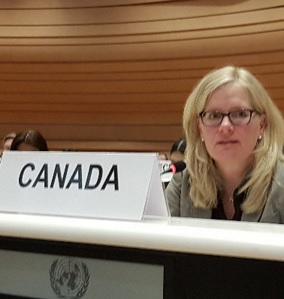
Canada’s lobster dispute goes international – UN committee seeks answers from Canada over racism, violence against Mi’kmaw fishers
The chair for the UN Committee on the Elimination of Racial Discrimination (CERD) asked Leslie Norton, Canada’s permanent representative to the United Nations in Geneva, Switzerland to explain what Canada has done to Investigate alleged acts of racism, violence and vandalism against Mi’kmaw fishers and supporters, Investigate alleged lack of response by officers with the RCMP and the Department of Fisheries and Oceans to protect Mi’kmaw people,,, The UN committee has given Norton until July 14 to provide a response. Sipekne’katik Chief Mike Sack said he was happy to see the letter from the UN committee. “It shows some hope that Canada has to answer for their actions or their lack of actions,” >click to read< 12:38
Canada’s lobster dispute goes international -Indigenous fishers say they have treaty and Supreme Court rights to fish where and when they want,,, Commercial fishers say the season is regulated and limited in order to conserve the resource,,, >click to read<

Expect more clashes like the Nova Scotia lobster dispute as Canadians’ rights collide
The ongoing dispute between a Mi’kmaq community and non-Indigenous lobster fishers in Nova Scotia seems like a throwback to a darker and more racist time. We were supposed to have come a long way since that time. So it might seem like this fishery dispute is a throwback, a sign of how far we still have to go in order to truly end racism towards Indigenous peoples and protect their rights in Canada. But unfortunately this dispute isn’t a throwback; it’s probably a look-ahead. This is because the Canadian approach to equality and Indigenous rights, an approach that is baked into our difficult-to-change Constitution and which has been taken up with gusto by the Supreme Court, is based on two opposing views of rights. >click to read< 09:45
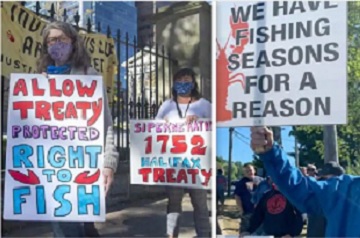
Nova Scotia lobster dispute. New year, new dispute
A Supreme Court ruling noted that Indigenous peoples have an inherent right to hunt and fish to earn a “moderate living” although what that phrase meant was never determined. In Nova Scotia, Indigenous groups have said the ruling means they can fish whenever they want. Commercial fishers say the established limited seasons must be respected for conservation reasons and are angered at the out of season fishing by Indigenous groups. Often not mentioned is the addition to the Supreme Court ruling which noted that the Indigenous rights were not absolute and limitations could be made for conservation needs and other limited “compelling and substantial public objectives”. >click to read< 07:38
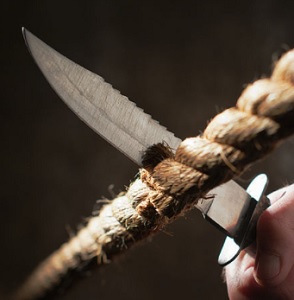
RCMP investigating gear slashing near Petit-de-Grat, Potlotek lobster traps seized for a ‘variety of reasons,’ says DFO
A dispute in a Cape Breton fishing community is being investigated by the Nova Scotia RCMP. Police described it as a case of “mischief,” and estimated the total financial loss for the traps and lobster is approximately $10,000. RCMP confirm there is no connection between this incident and reports of the Department of Fisheries and Oceans seizing traps from nearby Potlotek First Nation. >click to read< Potlotek Chief Wilbert Marshall 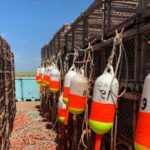 says federal government failing to accommodate treaty rights – A Mi’kmaw chief in Nova Scotia says a lobster fisherman whose traps were seized last week was fishing in accordance with his treaty rights. The seizure took place on April 30, the first day of the Potlotek First Nation’s spring lobster season. DFO said the removal of gear in St. Peters Bay was part of routine inspections to ensure the individual was compliant with the Fisheries Act. >click to read< 18:55
says federal government failing to accommodate treaty rights – A Mi’kmaw chief in Nova Scotia says a lobster fisherman whose traps were seized last week was fishing in accordance with his treaty rights. The seizure took place on April 30, the first day of the Potlotek First Nation’s spring lobster season. DFO said the removal of gear in St. Peters Bay was part of routine inspections to ensure the individual was compliant with the Fisheries Act. >click to read< 18:55
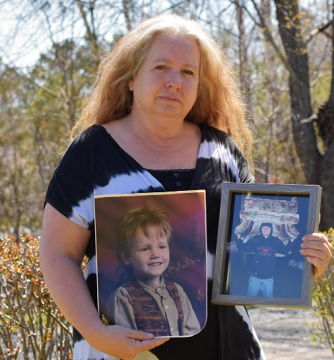
Family of fisherman lost in F/V Chief William Saulis tragedy denied death benefit, seek legislative change
Lori Phillips closes her eyes in a failed attempt to suppress tears. Her 29-year-old son was one of six crew members aboard the Chief William Saulis scallop dragger that sank off of the coast of Annapolis County’s Delaps Cove on Dec. 15, 2020.,, The Workers’ Compensation Board of Nova Scotia recently informed Phillips that there will be no lump sum payout to Cogswell’s family following his accidental death on the job. Phillips plans to appeal the decision. “His life mattered,” she said. She’s also set her sights on pushing for a change to the legislation in question. >click to read< 16:27

Zero chance of the UN intervening with peacekeepers to monitor Sipekne’katik lobster fishery
Queens University political scientist John McGarry said Chief Mike Sack might have “good political reasons” for making the request, but it won’t happen. “I’ll just put it bluntly: there is zero chance of the UN intervening with peacekeepers,” he said. McGarry said that’s due to several reasons, including that Canada would have to agree to the request and then invite peacekeepers in. “The Canadian government is not going to consent to that because that would mean it was incapable itself of looking after this issue, and that would be a profoundly embarrassing abdication of its responsibilities as a government, so it’s not going to agree to it,” he said. Failing that, the UN Security Council would have to pass,,, >click to read< 07:20

Captain Edward Johnson Sears of Lower Wood’s Harbour, has passed away
Captain Edward Johnson Sears, 71, of Lower Wood’s Harbour, passed away on April 26, 2021 at Surf Lodge. Born on April 27, 1949 he was a son of the late Lindsey and Helen (Jeffery) Sears. In his younger years he enjoyed playing softball with friends and coworkers. Edward work as a fisherman for 50 plus years, he loved fishing and being on the open waters with his sons, grandsons and crew. He enjoyed spending time with his family at his cottage. Were ever Edward was he always had a grandchild, great grandchild, or his dog, Shania in tow. >click to read< 11:14

Trial of four Mi’kmaw fishermen accused of illegal fishing begins next month in Nova Scotia
The trial of four Mi’kmaw fishermen accused of illegal fishing in September 2019 will begin next month in Nova Scotia provincial court. Ashton Joseph Bernard, 31, Arden Joseph Bernard, 22, Rayen Gage Frances, 22, and Zachery Cuevas Nicholas, 34, don’t dispute they were fishing in the lucrative Lobster Fishing Area 34 off southwestern Nova Scotia when the commercial season was closed. But the four men argue they had a treaty right to fish there during that time. The case involving the four fishermen also involves a fifth man, Michael Surette. Surette is not Indigenous so his case has been severed from the others. >click to read< 12:53
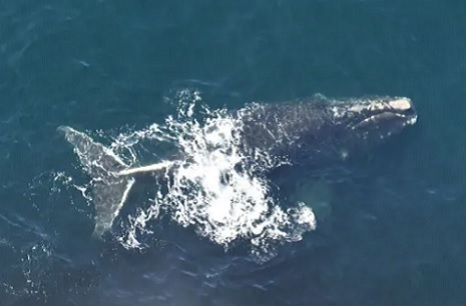
Right whale spotted in Canadian waters, DFO imposes 15-day crab fishing closure
The first North Atlantic right whale of the season has been sighted in Canadian waters, triggering an early and localized snow crab fishery closure in the Gulf of St. Lawrence. Observers flying in a plane spotted the whale Sunday afternoon northeast of the Magdalen Islands in the Cabot Strait.,, DFO said Monday it has responded. “This sighting has triggered a 15-day fishing closure in crab fishing area 12F,” the department said in a statement. Fishing area 12F is east of the Magdalen Islands. >click to read< 17:44
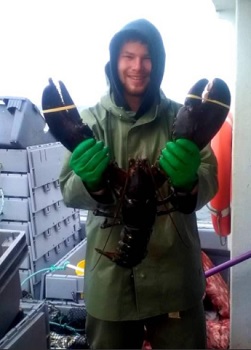
Injured N.S. lobster fisherman Andrew Saulnier is overwhelmed by ‘unbelievable’ community support
“It’s unbelievable how much the community can actually come together to help somebody. I can’t thank anyone enough … Andrew Saulnier struggles to find the words to describe his last few weeks. The 24-year-old fisherman suffered life-threatening injuries on a lobster boat. Saulnier has dealt with multiple surgeries, including a leg amputation, but said the outpouring of support from friends, family and the community has been truly incredible. “It’s unreal, that’s part of the reason why I’m so emotional,” RCMP have said the fisherman got caught in the machinery when the vessel’s engine went into gear. It’s a long road ahead. Please donate >click here< if you can! >click to read< 13:23
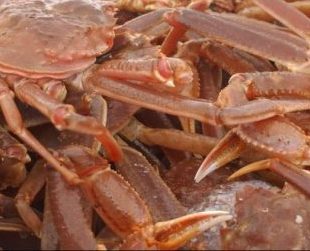
Snow crab market heats up with Record-Breaking Prices in northern Cape Breton
Soaring demand from the U.S. has resulted in snow crab coming in at over $8 a pound. The price was closer to $4.25 this time last year. Dave Donovan fishes out of Neils Harbour on board the Krista & Megan. “Eight dollars is a big bonus,” he said. “I guess it’s the best price I’ve ever seen since I’ve been in the fishery.” Donovan said the hot market this year is welcomed by all on the wharf, and in the processing plant. The high price is a surprise to Osborne Burke, “We didn’t anticipate this,” >click to read< 14:14

Sipekne’katik giving back lobster licences to DFO, starting own fishery
Sipkne’katik First Nation will announce Thursday, the voluntary relinquishment and return of their commercial licences to Fisheries and Oceans Canada. At the same event, they will announce their plans for their own self-regulated moderate livelihood fishery and a joint study with Dalhousie University’s marine affairs program. The move sets them squarely at odds with Fisheries Minister Bernadette Jordan, who in March issued a statement saying that DFO will work with First Nations to implement moderate livelihood fisheries this year but they must occur during established commercial seasons. >click to read< 17:16
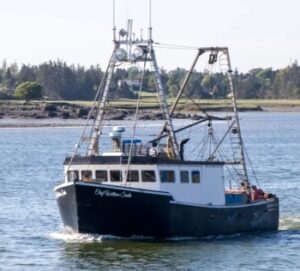
Absolute Inequity – Family of lost fisherman denied Workers’ Compensation survivor’s benefit
The mother of a fisherman who died when his scallop boat sank says she was shocked to learn his family won’t receive an accidental death benefit because he was single and had no children. Aaron Cogswell, 29, was one of six men who died when the Chief William Saulis sank off the coast of Delaps Cove, N.S., in December. His mother, Lori Phillips, said she recently learned that the Workers’ Compensation Board of Nova Scotia will not pay the $15,000 lump sum survivor’s benefit to the family. “A survivor is a survivor, if it’s a wife or,,, Phillips said she asked the board to put the denial in writing, so she knew exactly why >click to read< 10:48
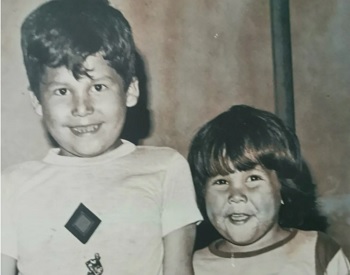
FV Tyhawk: Missing fisherman’s brother says he drowned trying to save others
As Derek Sock raced to his brother’s sinking fishing boat on Saturday, Craig Sock was fighting to save his shipmates in the frigid waters 16 nautical miles off the coast of Nova Scotia. The Tyhawk was making its second run of the day to set lobster traps when it began to take on water. As the crew tried to ready the life raft, the Tyhawk suddenly capsized, trapping Jumbo, as Craig Sock of Elsipogtog First Nation was known, and another man in the wheelhouse. Jumbo managed to toss that man out a window and both men surfaced. Derek said his brother lost his life trying to save his crew mate. >click to read< 07:57

Indigenous fishermen to assert treaty right for lobster fishing during court case
The stage is now set in Nova Scotia for another round in the court battles over Indigenous fishing rights. The lawyer for four Mi’kmaw fishermen appeared by phone Tuesday in Yarmouth provincial court. The men admit they were fishing for lobster aboard the vessel Charlene Helen off Pinkney’s Point, Yarmouth County, in September 2019. The area they were fishing in is part of Lobster Fishing Area 34, which was closed to fishing activity at the time. >click to read< 08:56
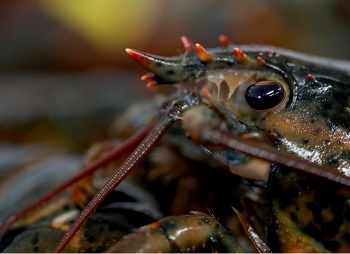
Canadian government likely has not met constitutional obligations to First Nations
The precedent set by the Supreme Court of Canada in the Marshall cases recognizes the First Nations’ right to fish under the Peace and Friendship Treaties but also allows for limitations by the government for the purpose of conservation. The Badger decision set out the parameters for applying those limitations and puts the onus on the federal government to show that the infringement of treaty rights is justified, and to consult with First Nations to find a solution that puts the minimum restrictions on Indigenous rights. The 13 Nova Scotia First Nations chiefs have unanimously rejected Jordan’s plan for a number of reasons, a major one being a lack of consultation. >click to read< 11:45

Nova Scotia’s Mi’kmaq chiefs want to see the science that restricts their fisheries.
Last week, Federal Fisheries Minister Bernadette Jordan, in a bid to end the conflict that has arisen since the Sipekne’katik First Nation began a moderate livelihood lobster fishery in September, announced that such fisheries would be required to operate within established commercial fishery seasons. That announcement, sandwiched between two meetings with the Assembly of Nova Scotia Mi’kmaw Chiefs, won praise from commercial fishers, who have contended that fishing outside their established seasons harms the fish stock. However, it drew scorn from Indigenous fishers,,, In a statement Friday, the assembly said that despite requesting specific data sets from the department during meetings over the past week, “including detailed scientific, economic and management data to justify the imposition of commercial seasons,” no such data has been provided. >click to read< 07:40






